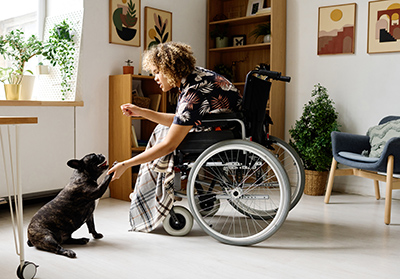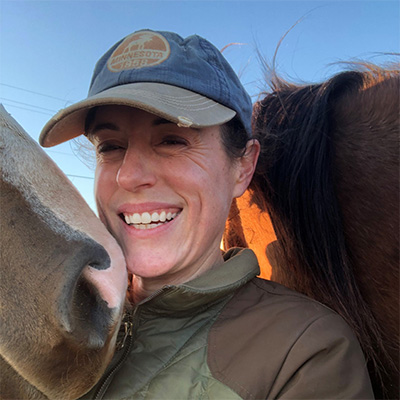Undergraduate Certificate in Animal-Assisted Therapy
 Animal assisted therapy, and the study of human–animal interactions, is an exciting and growing field of scientific inquiry focusing on our relationship with animals. Through this Assisted-Animal Therapy Certificate program, you will learn to integrate companion animals safely and ethically into a variety of treatment settings. You’ll study how human–animal bonds have both emotional and health benefits, how to safely and ethically apply animal interactions as a therapeutic tool, and learn techniques for working with therapy animals.
Animal assisted therapy, and the study of human–animal interactions, is an exciting and growing field of scientific inquiry focusing on our relationship with animals. Through this Assisted-Animal Therapy Certificate program, you will learn to integrate companion animals safely and ethically into a variety of treatment settings. You’ll study how human–animal bonds have both emotional and health benefits, how to safely and ethically apply animal interactions as a therapeutic tool, and learn techniques for working with therapy animals.
Over your course of study, you’ll write a manual that is tailored to your professional needs and species of choice. The final manual will consist of three parts that mirror the animal therapy program's outcomes and will create a professional reference manual tailored for your use.
Upon completion of this animal therapy certificate program, you’ll have the knowledge and skills to:
- Evaluate animal-assisted therapy standards of best practice.
- Explain safe and effective animal assisted therapies.
- Analyze the physiological and mental health benefits of the human-animal bond.
- Interpret the legal, ethical, and beneficial aspects of animal-assisted therapies.
- Identify the role of animal-assisted therapies as it pertains to different fields of practice.
*All rates subject to change



 Online Enrollment Counselor
Online Enrollment Counselor